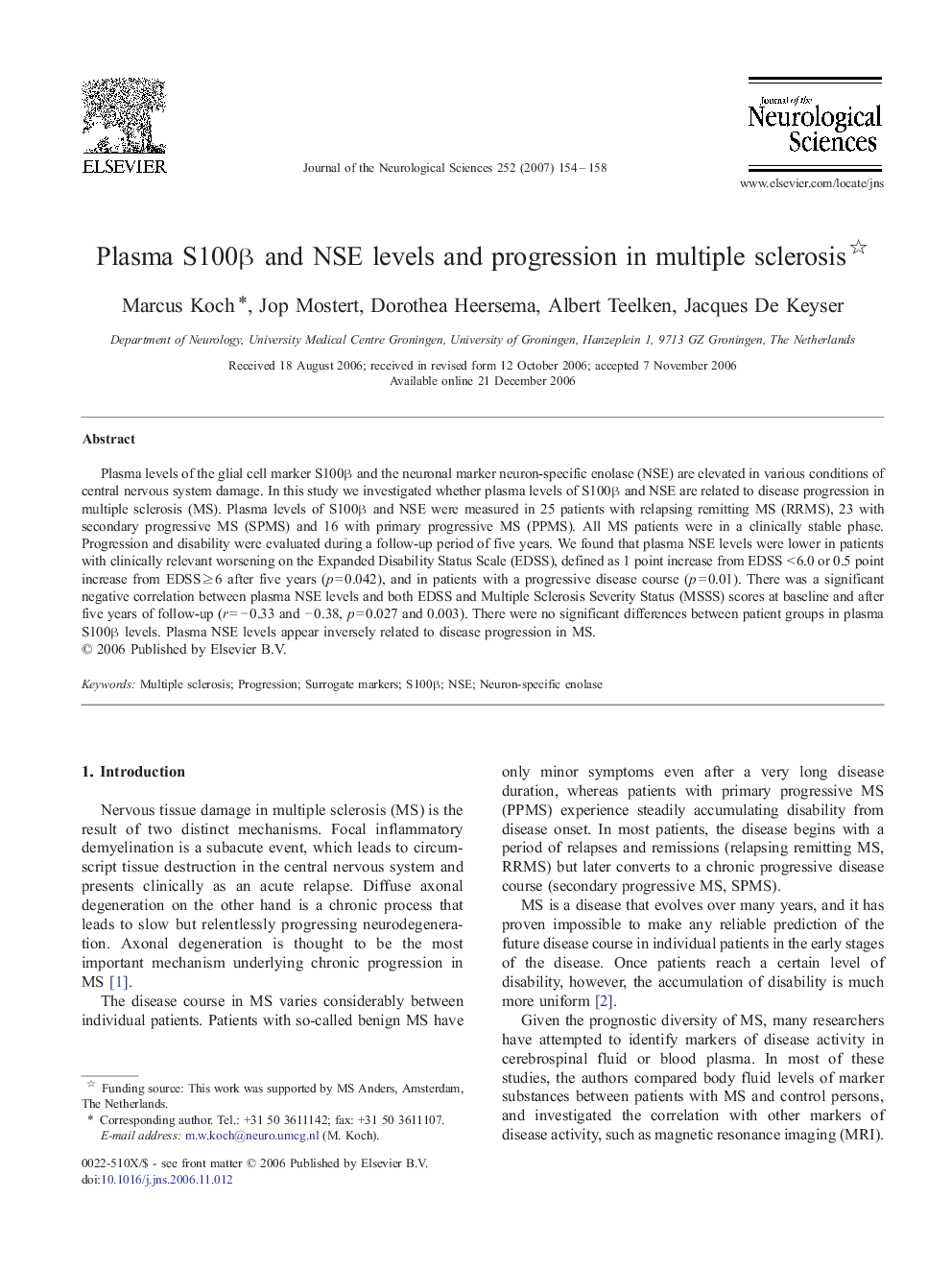| Article ID | Journal | Published Year | Pages | File Type |
|---|---|---|---|---|
| 1916471 | Journal of the Neurological Sciences | 2007 | 5 Pages |
Plasma levels of the glial cell marker S100β and the neuronal marker neuron-specific enolase (NSE) are elevated in various conditions of central nervous system damage. In this study we investigated whether plasma levels of S100β and NSE are related to disease progression in multiple sclerosis (MS). Plasma levels of S100β and NSE were measured in 25 patients with relapsing remitting MS (RRMS), 23 with secondary progressive MS (SPMS) and 16 with primary progressive MS (PPMS). All MS patients were in a clinically stable phase. Progression and disability were evaluated during a follow-up period of five years. We found that plasma NSE levels were lower in patients with clinically relevant worsening on the Expanded Disability Status Scale (EDSS), defined as 1 point increase from EDSS < 6.0 or 0.5 point increase from EDSS ≥ 6 after five years (p = 0.042), and in patients with a progressive disease course (p = 0.01). There was a significant negative correlation between plasma NSE levels and both EDSS and Multiple Sclerosis Severity Status (MSSS) scores at baseline and after five years of follow-up (r = − 0.33 and − 0.38, p = 0.027 and 0.003). There were no significant differences between patient groups in plasma S100β levels. Plasma NSE levels appear inversely related to disease progression in MS.
